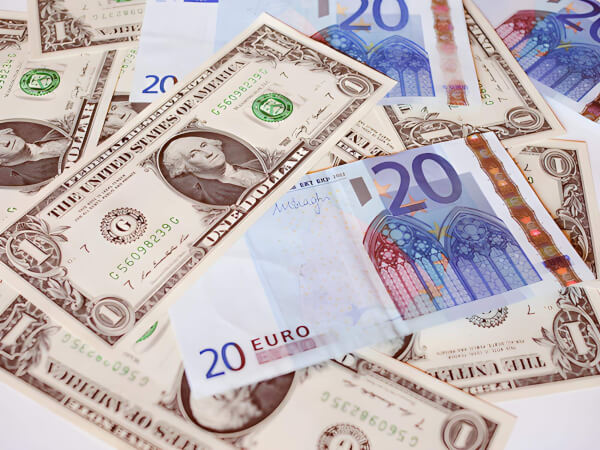- The session on the European stock exchanges closed with small gains. DAX was up 0.3%, and the British FTSE almost 0.6%.
- Wall Street indices gained slightly during Friday's session, and the S&P 500 recorded an increase of over 2% this week. BigTech companies are doing worse, the health care sector is doing best, where United Health Group shares are gaining almost 5%.
- On the other hand, we can see an almost 6% sell-off in the shares of the manufacturer of specialized semiconductor equipment, Applied Materials, whose results and forecasts disappointed expectations. However, this decline did not translate into weaker sentiment in the entire semiconductor sector
- Bitcoin price returns above 104 thousand dollars, accelerating optimism on the crypto market. Ethereum is up over 2%. Gold is falling further, losing over 1.6% today. Investors are turning their attention to risky assets
- Preliminary data from the University of Michigan has indicated a dip in consumer sentiment and an increase in inflation expectations - both short-term and long-term.
- University of Michigan preliminary consumer sentiment index: 50.8 (forecast: 53.4; previously: 52.2)
- Preliminary expectations index: 46.5 (forecast: 48.6; previously: 47.3)
- Preliminary current situation index: 57.6 (forecast: 59.9; previously: 59.8)
- University of Michigan preliminary inflation expectations for 1 year: 7.3% (forecast: 6.5%; previously: 6.5%)
- Preliminary inflation expectations for 5 years: 4.6% (forecast: 4.4%; previously: 4.4%)
- The talks in Istanbul did not bring satisfactory results between Russia and Ukraine - apart from the exchange of prisoners of war. According to Ukraine, Russia has made unrealistic demands, going far beyond what the Kremlin has communicated so far. Despite this, we see no increase in demand for ‘safe havens’
- The end of the week brought a decline in gold prices as demand for risk assets continues. The precious metal is down 1.6% today.
- The US dollar once again dominates the forex market, although the Antipodean currencies, the New Zealand dollar and the Australian dollar are doing equally well. The biggest declines, however, are in the euro and the Swiss franc.

ปฏิทินเศรษฐกิจ: จับตาเงินเฟ้อ CPI สหรัฐฯ เป็นไฮไลต์หลัก 📊

ข่าวเด่นวันนี้

BREAKING: จำนวนผู้ยื่นขอสวัสดิการว่างงานในสหรัฐฯ ปรับตัว สูงกว่าที่คาดเล็กน้อย

ปฏิทินเศรษฐกิจ: จำนวนผู้ขอรับสวัสดิการว่างงานสหรัฐฯ และคำกล่าวของ ECB ช่วยให้ตลาดผ่อนคลาย


